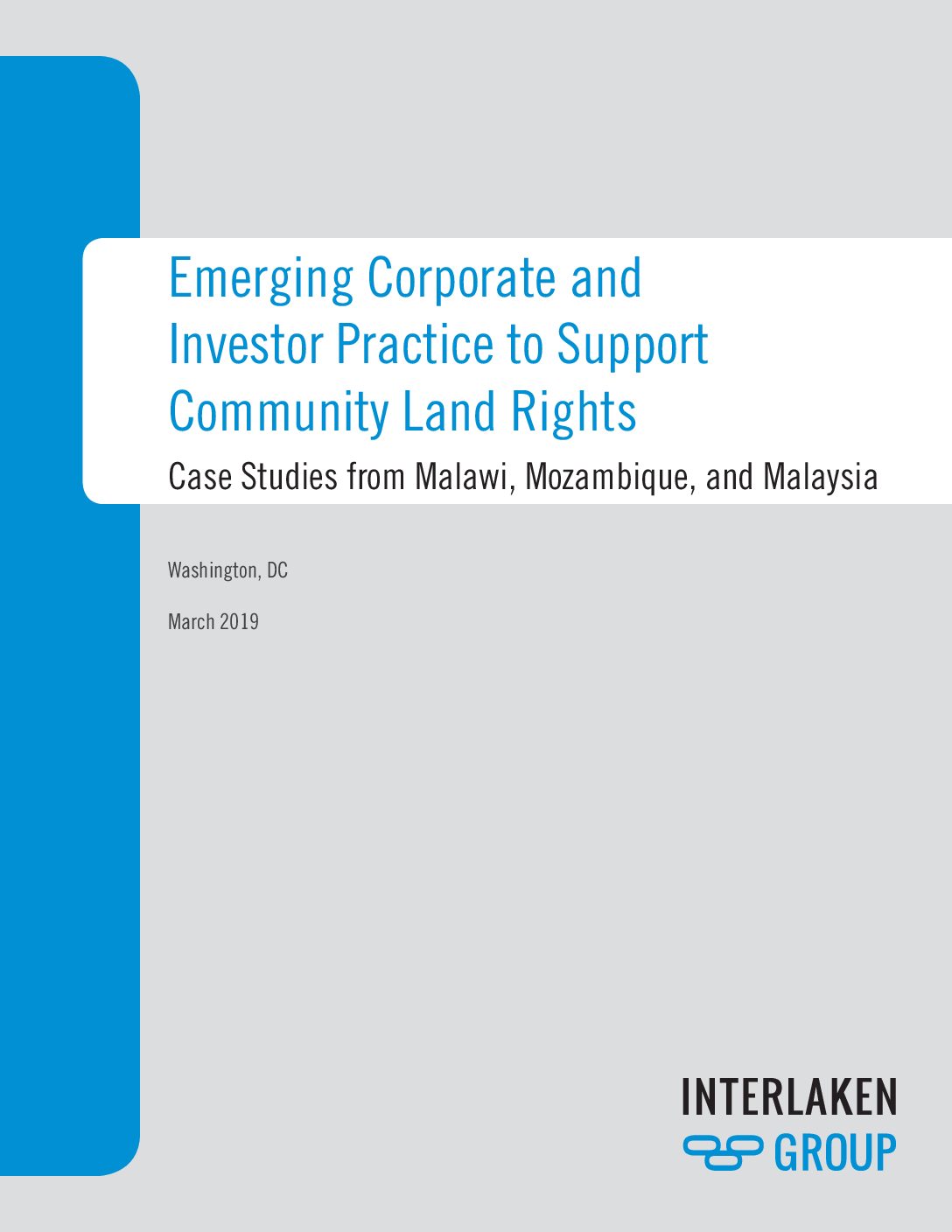Date: March 31, 2019
Companies may face operational, legal, and financial risks when operating or investing in locations where land rights are disputed or where tenure rights are not understood and respected. Perhaps more importantly, community access and rights to livelihoods and economic security may be negatively impacted by such investments.
As operators, investors, and governments increasingly recognize the need to respect local land rights, they have made a number of high-level commitments to do so. In response to company commitments, several organizations have produced guides for companies on how to incorporate emerging best practices on land rights into their investments and operations based on the internationally agreed Voluntary Guidelines on the Responsible Governance of Tenure, or VGGT.
The challenge of putting such guidelines into practice rests with companies operating in a variety of governance contexts. In practice, implementing and upholding best practices on land tenure is complex, context specific, and requires ongoing engagement and dialogue. Very few organizations have gotten it exactly right and the process of doing so tends to be an iterative one based on field experience. Therefore, most companies are looking for insights on how to initiate and pursue their commitments to respecting land rights.
The purpose of this paper is to illustrate how selected companies are implementing commitments to international best practices on land rights. Given that the companies referenced in this paper are in the process of developing and improving ways to address land tenure rights, the cases ought to be viewed as examples of emerging company experiences, which can contribute to establishing best practices. The case studies in this paper are not in-depth assessments, but rather convey company perspectives, without corroboration with communities’ or other actors’ points of view.
This analysis, along with other guides and resources for private sector actors, is also available on the Interlaken Group website.

